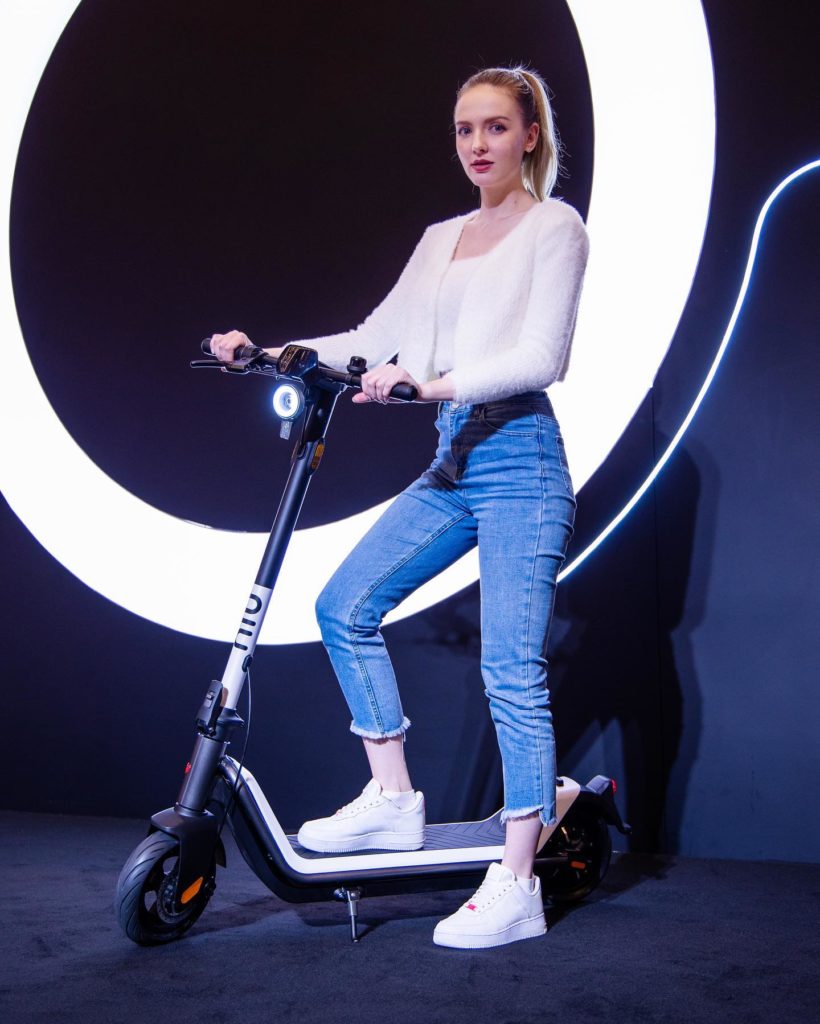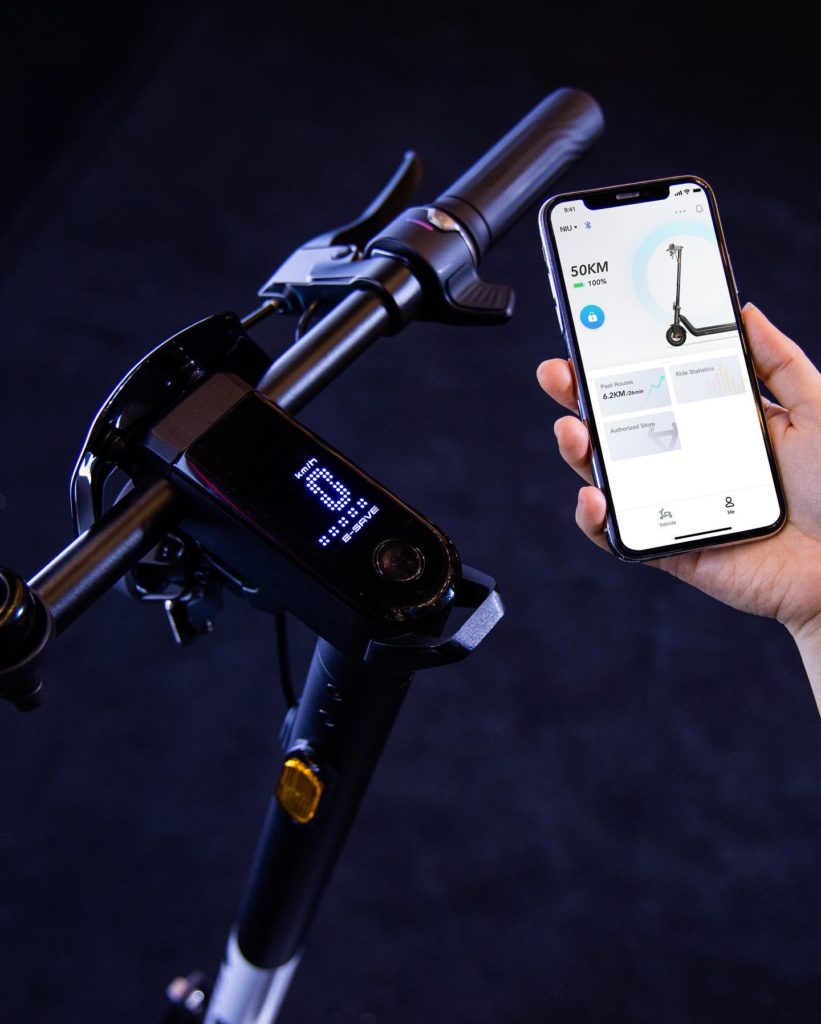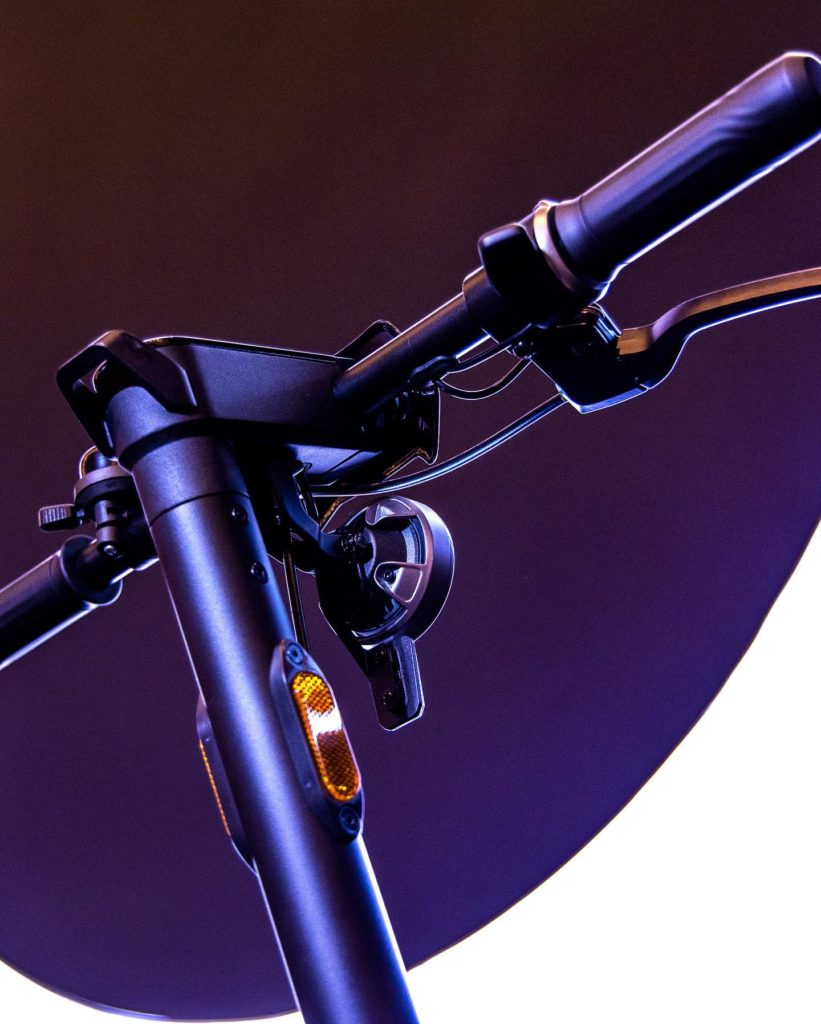Mobility company NIU think that there’s still a big market for kick scooters and has just shown off a new, battery-powered version explicitly for the US and EU markets. These are more comfortable alternatives for people who don’t want to haul a bike around and don’t want to have a car. How much of the future is this?
The pandemic has had the effect on me of removing large chunks of data I once considered important from my brain and it took me a minute to remember just how insane the kick scooter wars of 2018 were. It was that perfect transition moment where a utopian view created by Silicon Valley of people eschewing cars for scooters and bikes met with the often dystopian reality of the cynical, hype and profit-fueled reality of what unchecked Silicon Valley types are happy to unleash on the world.
Suddenly, there were scooters everywhere in cities, littering the grounds and causing people to break their bones. Scooter companies and cities reached some level of detente and the economics eventually caught up with the hype. And then the pandemic happened and people weren’t suddenly traipsing around the city at ease (although people decided cabs and trains an buses were maybe less ideal ways to get around).
Ultimately, the pandemic was good for e-mobility with e-bike sales rising. Cities are becoming increasingly anti-car and so alternatives are an inevitable necessity. It would be ideal if this meant more public transit as that’s always going to be the most efficient and least disruptive way to address transportation within cities, but even a good subway and bus system can’t easily link all points.
Enter the kick scooter. I bought one during the pandemic, albeit a non-electric one powered by my own legs and used predominately to chase my daughter down on her bike or scooter.
NIU’s scooter, which should retail for about $599, was clearly designed with Western markets in mind.
If you watch the presentation above, a lot of the features are designed around safety, comfort, and ease. There are pneumatic, anti-skid tires with a real suspension backed by disc brakes. The Pro-version of the NIU Kick Scooter can reach 21 miles of range with a 20 mph of top speed and a five-hour charging time. For anyone living within a city it’s likely to be able to connect you with your destination and back without a charge.
I’m not entirely convinced that the kick scooter is the absolute best solution for private, personal mobility. They’ve gotten safer, but they are not without their risks. They are better than the environment than cars, but worse than most other solutions.
Most likely, they’re a part of the larger solution, connected to mass transit and other technologies. What’s clear, though, is building cities for cars was a bad idea to begin with and that no one with any sense is going to be expanding car access in dense urban areas. A world in which we have more scooters and fewer cars right downtown is a better world.



